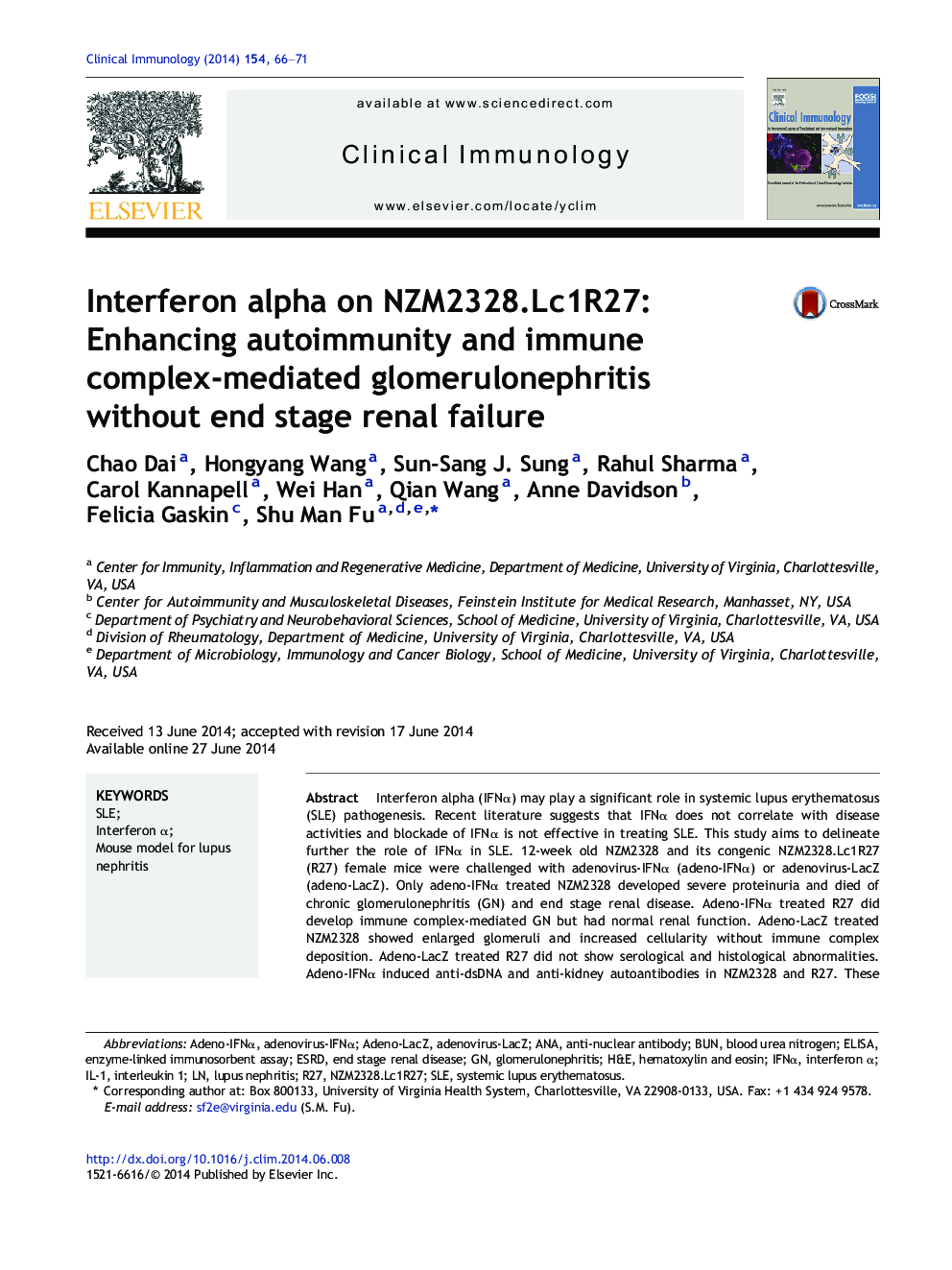| Article ID | Journal | Published Year | Pages | File Type |
|---|---|---|---|---|
| 3256890 | Clinical Immunology | 2014 | 6 Pages |
•Autoimmunity does not lead to end organ damage in some hosts.•Interferon alpha does not lead to chronic GN in NZM2328.Lc1R27.•Anti-dsDNA antibodies may not cause chronic GN.•Immune-complex mediated lupus nephritis need not progress to renal failure.
Interferon alpha (IFNα) may play a significant role in systemic lupus erythematosus (SLE) pathogenesis. Recent literature suggests that IFNα does not correlate with disease activities and blockade of IFNα is not effective in treating SLE. This study aims to delineate further the role of IFNα in SLE. 12-week old NZM2328 and its congenic NZM2328.Lc1R27 (R27) female mice were challenged with adenovirus-IFNα (adeno-IFNα) or adenovirus-LacZ (adeno-LacZ). Only adeno-IFNα treated NZM2328 developed severe proteinuria and died of chronic glomerulonephritis (GN) and end stage renal disease. Adeno-IFNα treated R27 did develop immune complex-mediated GN but had normal renal function. Adeno-LacZ treated NZM2328 showed enlarged glomeruli and increased cellularity without immune complex deposition. Adeno-LacZ treated R27 did not show serological and histological abnormalities. Adeno-IFNα induced anti-dsDNA and anti-kidney autoantibodies in NZM2328 and R27. These results suggest that end organ damage is host-dependent and less related to autoimmunity and may have significant implications in SLE pathogenesis.
